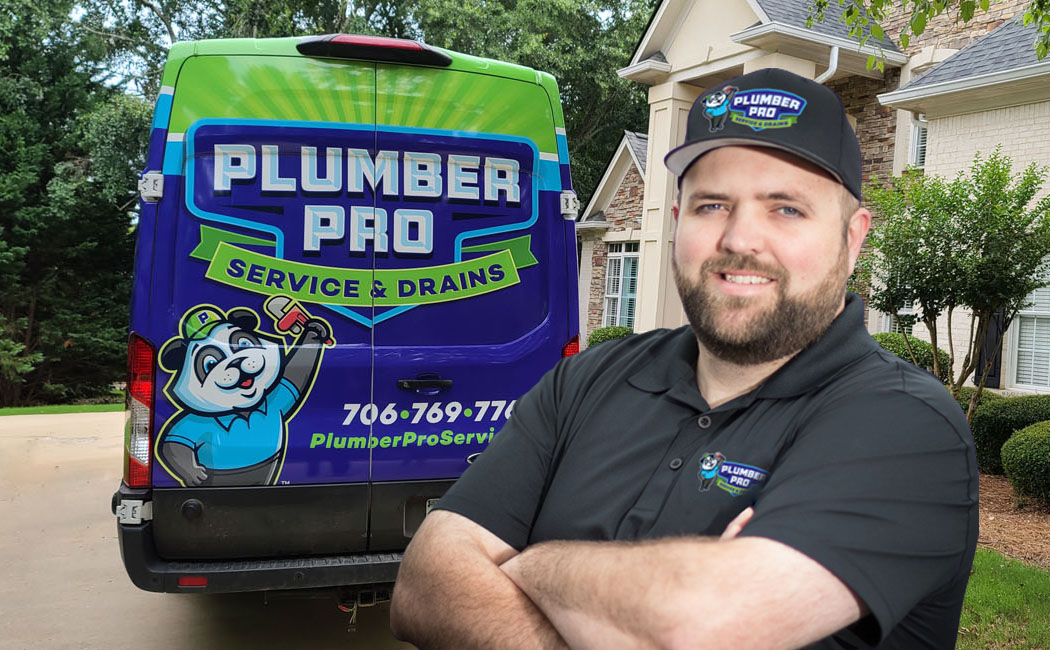
No Hot Water? A Step-by-Step Guide to Diagnosing Problems with Your Lawrenceville Plumber

When you wake up on a chilly morning and step Go to this site into the shower only to be greeted by ice-cold water, it’s enough to send anyone into a panic. Suddenly, you're faced with the daunting task of figuring out what's gone wrong. Fear not; this guide will help you navigate through the murky waters of your plumbing issues. In this comprehensive article, we’ll cover everything you need to know about diagnosing problems with your hot water system in Lawrenceville.
Understanding Your Water Heater
Types of Water Heaters
Before diving into troubleshooting, it’s essential to understand what type of water heater you have. There are generally two main types:
Knowing which model you have can significantly influence how you approach diagnosing issues.
Discover more hereCommon Problems Associated with Water Heaters
Just like any appliance, water heaters can run into trouble. Here are some common problems that might lead to a lack of hot water:
- Thermostat malfunctions
- Heating element failure
- Sediment buildup
- Broken dip tube
Understanding these issues will help you pinpoint the problem more effectively.
No Hot Water? A Step-by-Step Guide to Diagnosing Problems with Your Lawrenceville Plumber
Diagnosing why your hot water has vanished can be straightforward if approached logically. Follow these steps:
Step 1: Check the Power Supply
The first thing you should do is check if your unit is receiving power.
For Electric Water Heaters:
- Ensure the circuit breaker hasn’t tripped.
- Inspect for blown fuses.
For Gas Water Heaters:
- Confirm that the gas supply is turned on.
- Look for any pilot light issues.
If there’s no power or gas supply, that could be your problem right there!
Step 2: Examine the Thermostat Settings
Sometimes it’s as simple as adjusting your thermostat settings.
Electric Models:
Gas Models:
A misconfigured thermostat can easily lead to lukewarm showers!
Step 3: Inspect for Leaks
Leaks can cause significant problems in any plumbing system. Look around your unit for any signs of leakage.
Signs Include:
- Wet spots around the heater.
- Puddles near pipes or at the base of the tank.
If leaks are apparent, this could lead to decreased hot water availability and requires immediate attention from a professional – perhaps even an emergency plumber!
Step 4: Check for Sediment Buildup
Sediment buildup can impede heating efficiency in storage tank models.
To Check for Sediment:
Regular flushing may be necessary every six months!
Step 5: Investigate Heating Elements
If none of the above checks yield results, it’s time to look at heating elements—especially in electric models.
To Test Heating Elements:
If you're not comfortable doing this yourself, don't hesitate to call Gwinnett Plumber Pro Service for assistance!
Water Heater Repair Lawrenceville GA
Once you've diagnosed where things went wrong, it's essential to consider whether repair or replacement is more cost-effective.
When Is Repair Ideal?
Repairs are often suitable when:
- The heater is relatively new (under ten years).
- Only minor components need replacing.
When Should You Consider Replacement?
You may want a new unit if:
- The heater is old (over ten years).
- It consistently breaks down despite repairs.
The cost-effectiveness analysis here is crucial—sometimes investing in a new system saves money in the long run compared to frequent repairs!
Water Heater Replacement Lawrenceville
If repair isn’t feasible and replacement seems necessary, here are some tips on how to proceed:
Choosing Between Conventional vs Tankless Models
While conventional models are usually cheaper upfront, tankless models offer benefits like energy savings and extended lifespans. Evaluate your needs before making a choice!
Factors Affecting Installation Costs
Understanding these variables will prepare you financially for what lies ahead regarding installations!
Lawrenceville Water Heater Installation Process
Once you've settled on a replacement model, it’s crucial that installation is done correctly:
Preparation Steps Before Installation
Taking care during installation ensures long-term reliability!
FAQs
Frequently Asked Questions About No Hot Water? A Step-by-Step Guide to Diagnosing Problems with Your Lawrenceville Plumber
Q1: Why did my hot water suddenly stop working?
A1: Sudden loss of hot water often relates back to issues such as thermostat malfunctions or heating element failures.
Q2: How often should I flush my water heater?
A2: Every six months is advisable; this helps prevent sediment buildup which affects efficiency over time.
Q3: Can I replace my own water heater?
A3: While possible for handy individuals, it's generally safer and more effective to hire professionals like Gwinnett Plumber Pro Service for installations or replacements.
Q4: What should I do if I notice leaks around my heater?

Q5: How do I find emergency plumber services nearby?
A5: Search online using terms such as "emergency plumber" or "24 hour plumber near me" for quick results in emergencies!
Q6: Are tankless heaters worth investing in?
A6: They provide continuous hot water without waiting and are generally more energy-efficient over time than traditional models; hence they can be worth considering depending on personal circumstances.
Conclusion
Dealing with sudden cold showers doesn’t have to become an overwhelming ordeal! By following our step-by-step guide titled "No Hot Water? A Step-by-Step Guide to Diagnosing Problems with Your Lawrenceville Plumber," you can confidently troubleshoot common issues that arise within your home’s plumbing system—all while knowing when it's best left up to professionals like those at Gwinnett Plumber Pro Service! Whether it leads to repairs or complete replacements such as "water heater replacement Lawrenceville," staying informed empowers homeowners everywhere against unexpected hot-water crises!